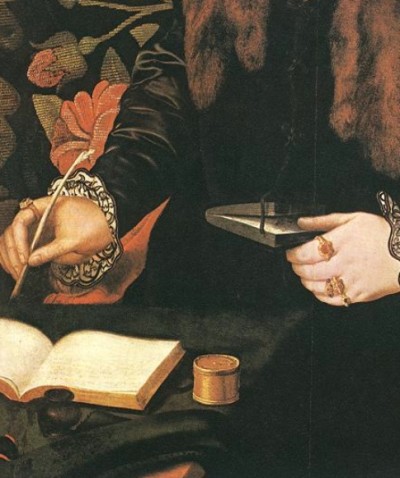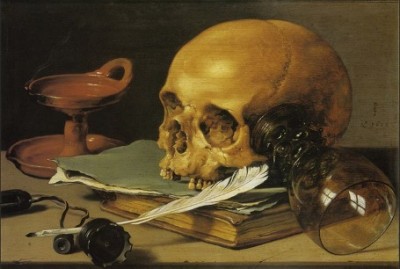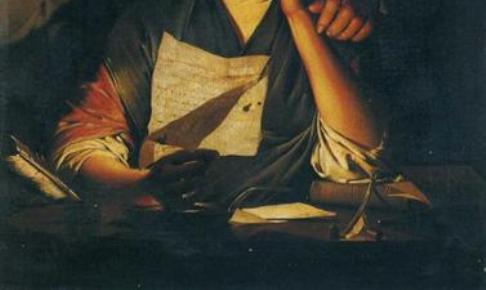Like many historians, researches, readers of historical fiction, and Anne Boleyn fans, I like thinking that Anne wrote the poem/song “O Death, Rock Me Asleep” on the eve of her execution on the 19th of May 1536.
It is a great and beautiful poem that conveys a tremendous wealth of “dark” emotions – agonizing torment, mental anguish, strong pain and heartache, and finally resignation with her fate – by the use of variety of special techniques, including metaphors, similes, and onomatopoeia, making the descriptions more emphatic and vivid.

But was this poem really written by Anne Boleyn herself? Is it our wishful thinking or truth?
If we disregard our wishes, we will see that we have no solid evidence that Anne herself wrote this poem. Martin Pope researched the truth behind the poem supposedly written by Anne: he visited all the parts of the Tower of London, where Anne was imprisoned and languished waiting for her execution, he researched and analyzed some known facts about Anne’s last days, and he made some interesting conclusions.
Below you can find the link to the video about Pope’s findings.
Martin Pope discovered that the poem didn’t exist before 1536, and so we know that it might have been written around 1536. However, there is some doubt that it was really written by Anne herself.

When Anne was arrested and imprisoned in the Tower, Sir William Kingston, Constable of the Tower under King Henry VIII, was her jailer. Thomas Cromwell chose several ladies to attend Anne, all of whom served either Catherine of Aragon or her daughter, Mary, and who were supposedly chosen by the king’s chief minister based on the lack of sympathy and respect which these women had for Anne. According to Lancelot de Carles, Anne was “attended by Lady Kingston, Lady Boleyn and her young ladies”.

Nobody of the afore-mentioned people was in the Tower to help the distraught queen survive through the long and excruciating moments of her heartbreak and anticipation. They were Anne’s jailors and tormentors, whose task was to spy on her and record every spoken word and movement of hers.
Of course, everything about Anne’s last days was reported to Cromwell, the very man who had orchestrated Anne’s downfall, maybe even at Henry VIII’s behest. To ensure that the “adulterous” queen was properly watched, Anne wasn’t permitted to speak to any of her ladies without the presence of Mary Scrope, Lady Kingston, the wife of the Tower’s Constable. Later, all of them were among those who walked with the queen to the scaffold.

We know that Anne Boleyn was very distraught and said many things to her ladies, and Kingston was informed about the activities of their notable prisoner. The Constable made regular and accurate reports to Cromwell and the Council about Anne’s imprisonment.
Kingston’s reports survive in the Letters and Papers of Henry VIII’s reign, although many of them were damaged by the 1731 fire, already more than two centuries after Anne’s death. Nowadays, some of these reports might be seen in the British Museum, with marks of partial destruction by the fire.

It is not mentioned in William Kingston’s reports that Anne was permitted to have any sort of writing equipment in the Tower. On the contrary, it seems that the queen was prohibited from writing anything and was allowed only to pass messages through Kingston and his wife after having her messages checked. In “The Lady in the Tower,” Alison Weir gives a letter which was supposedly written by Anne to Henry, but its authenticity cannot be verified and it might have not been written by Anne herself.
It is highly unlikely that Kingston, his wife, and Anne’s other ladies didn’t notice that the queen was exercising her writing talents: it takes time to think about and write such a dramatic poem, and Anne was watched over throughout day and night, so that her ladies must have seen her writing it. However, it is not entirely impossible that she could have written it under the cover of darkness, in the rare moments when her jailors fell asleep, but I don’t think it was the case. Alternatively, Kingston’s report featuring Anne writing the poem might have been destroyed by the 1731 fire, but it also seems unlikely.

Therefore, we cannot say with a hundred percent confidence that the poem was written by Anne during her last days in the Tower, although it is not entirely impossible that she didn’t write it. In my opinion, Anne didn’t have an opportunity to write this poem/song, although I like imagining that she did write it. Maybe we will never solve the mystery of who really wrote this tragic poem which makes my heart skip a beat not once while reading it.
The poem/song “O Death, Rock Me Asleep” is given below:
O Death, O Death, rock me asleepe,
Bring me to quiet rest;
Let pass my weary guiltless ghost
Out of my careful breast.
Toll on, thou passing bell; Ring out my doleful knell;
Thy sound my death abroad will tell,
For I must die,
There is no remedy.

My pains, my pains, who can express?
Alas, they are so strong!
My dolours will not suffer strength
My life for to prolong.
Toll on, thou passing bell;
Ring out my doleful knell;
Thy sound my death abroad will tell,
For I must die,
There is no remedy.

Alone, alone in prison strong
I wail my destiny:
Woe worth this cruel hap that I
Must taste this misery!
Toll on, thou passing bell;
Ring out my doleful knell;
Thy sound my death abroad will tell,
For I must die,
There is no remedy.

Farewell, farewell, my pleasures past!
Welcome, my present pain!
I feel my torment so increase
That life cannot remain.
Cease now, thou passing bell,
Ring out my doleful knoll,
For thou my death dost tell:
Lord, pity thou my soul!
Death doth draw nigh,
Sound dolefully:
For now I die,
I die, I die.





